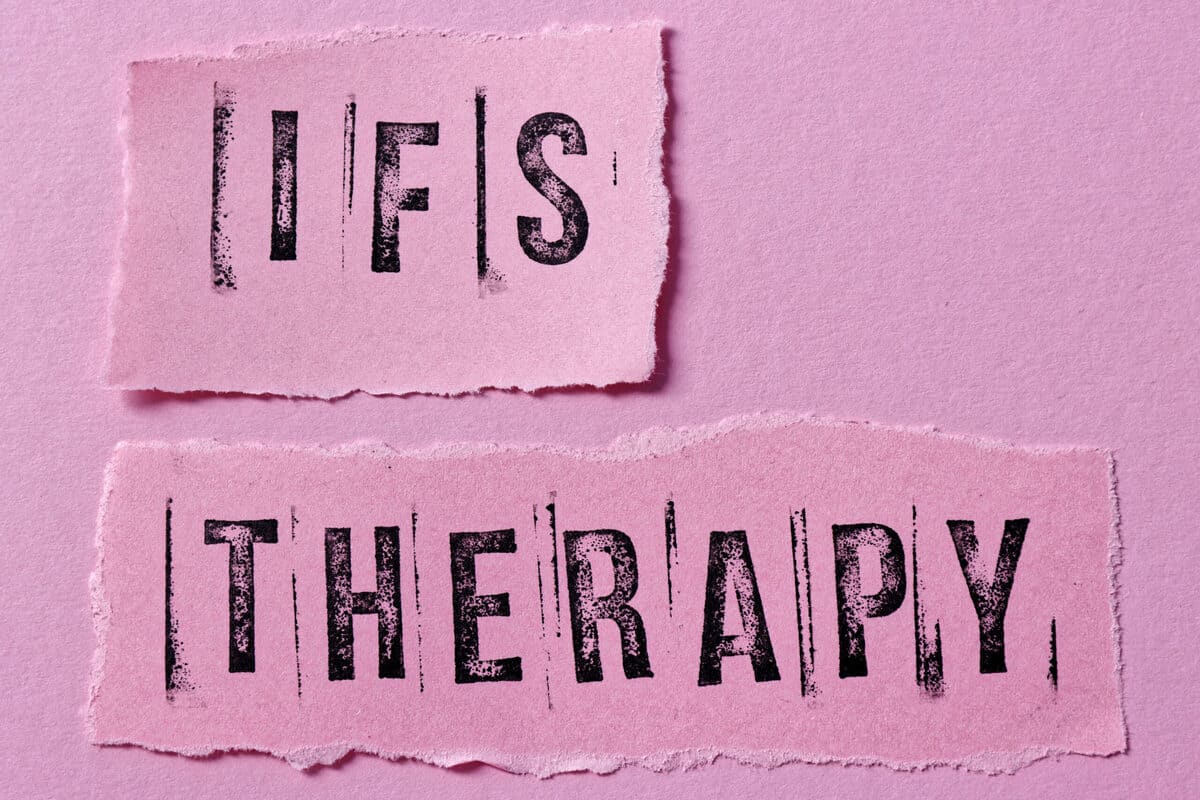Internal Family Systems Therapy (IFS): A Guide to Healing and Personal Growth

Internal Family Systems (IFS) is an innovative psychotherapy approach that promotes healing and personal growth by addressing the complexities of the human psyche. Developed by Dr Richard Schwartz in the 1980s, IFS is based on the idea that our minds have multiple sub-personalities or “parts” that influence our thoughts, feelings, and behaviours. In this comprehensive guide, we’ll delve into the principles of IFS therapy, explore its benefits, and discuss how it can be applied in various therapeutic contexts.
The core principles of the Internal Family Systems Model (IFS)
IFS therapy is grounded in several fundamental principles that form the foundation of this transformative treatment modality:
- The nature of the mind: IFS posits that our minds are composed of multiple distinct parts or subpersonalities, each with unique characteristics and roles.
- Self-leadership: At the centre of our internal system is the self, an essence that is compassionate, curious, and non-judgmental. IFS aims to help individuals access and strengthen their Self-leadership.
- Systems thinking: IFS views our internal parts as a dynamic system, with parts interacting and influencing one another, often creating patterns of behaviour and emotional responses.
- Healing through understanding and compassion: IFS promotes healing by fostering understanding, empathy, and acceptance towards all parts, even those that may initially seem harmful or destructive.
The three categories of self in IFS
In IFS therapy, our internal parts are typically grouped into three categories:
- Managers: These parts are proactive and focused on maintaining control over our lives, preventing emotional pain, and keeping us functioning in our daily routines. Managers might include perfectionists, planners, and inner critics.
- Firefighters: These parts are reactive, stepping in to extinguish emotional pain or distress when it arises. Firefighters often use impulsive or extreme strategies to numb or distract from uncomfortable emotions, such as substance use, overeating, or self-harm.
- Exiles: These parts are the vulnerable, wounded aspects of us that carry painful emotions and memories from past traumas or adverse experiences. Managers and Firefighters may attempt to exile these parts to protect us from feeling overwhelmed by this pain, keeping them hidden or suppressed.
The 5 P’s of the Internal Family Systems Therapy Model (IFS)
In IFS therapy, the 5 P’s serve as a framework to better understand and engage with our internal parts. They are:
- Parts: As previously mentioned, the IFS model is based on the belief that our minds have multiple sub-personalities or parts. Each part has unique roles, intentions, and perspectives and contributes to the individual’s overall functioning.
- Polarisation: Polarisation occurs when two or more parts within our internal system hold opposing beliefs, desires, or opinions. This conflict can lead to inner tension, emotional distress, and unproductive behaviours. IFS therapy aims to resolve polarisation by fostering understanding, empathy, and compromise between these conflicting parts.
- Protectors: In IFS, protectors are responsible for safeguarding our emotional well-being. Managers and Firefighters, as previously described, are considered protectors in the IFS model. Their primary function is to shield the vulnerable Exiles from further harm or emotional pain.
- Persistence: Persistence refers to the ongoing presence and influence of parts within our minds, even when their roles may no longer be necessary or beneficial. In IFS therapy, the goal is to help parts adapt and evolve by acknowledging their persistence, understanding their intentions, and working with them to develop new roles or strategies that better serve the individual’s overall well-being.
- Permission: In the IFS model, permission is essential to the therapeutic process. Granting permission involves allowing each part to express its thoughts, feelings, and intentions without judgment or resistance. Through giving permission, individuals can foster a more open and compassionate dialogue between their Self and their parts, ultimately promoting healing and transformation.
By incorporating the 5 Ps into the IFS framework, therapists can support clients to gain a more comprehensive understanding of their internal systems and navigate the healing process more effectively. Embracing the principles of Parts, Polarisation, Protectors, Persistence, and Permission, IFS therapy fosters an environment of empathy, understanding, and self-compassion that enables individuals to achieve lasting change and improved well-being.
The IFS therapy process
IFS therapy involves a structured process that helps individuals identify their parts, understand their roles, and foster compassionate Self-leadership. Critical stages of the IFS process include:
- Building awareness: The therapist assists clients in recognising and mapping their internal parts, gaining insight into each part’s function, emotions, and beliefs.
- Accessing Self-leadership: The therapist guides clients to cultivate qualities of the Self, such as curiosity, compassion, and openness, allowing them to lead the healing process.
- Connecting with parts: Clients learn to engage in compassionate dialogues with their parts, building understanding, empathy, and trust between the Self and each piece.
- Unburdening and healing: As clients build connections with their parts and develop Self-leadership, they can release the burdens and pain held by Exiles, allowing for healing and transformation.
Benefits of IFS therapy
IFS therapy has been found effective in treating a wide range of psychological issues and promoting overall well-being. Some of its benefits and applications include:
- Trauma and PTSD: IFS can help individuals process and heal from traumatic experiences by addressing the Exiles that carry unresolved pain and trauma.
- Anxiety and depression: IFS can assist in understanding and transforming parts that contribute to anxiety and depressive symptoms.
- Relationship issues: IFS can enhance communication, empathy, and understanding within personal relationships by helping individuals recognise and address the internal parts that influence their interactions with others.
- Self-esteem and self-compassion: IFS can foster a more positive self-image and increased self-compassion by helping individuals connect with their Self and better understand the roles of their inner critic or other parts that impact self-worth.
- Addictions and compulsive behaviours: IFS can support individuals in identifying and healing the underlying parts that drive addictive or compulsive behaviours, enabling them to establish healthier coping strategies.
- Stress management and emotional regulation: IFS can enhance emotional regulation and stress management by promoting Self-leadership and improving the balance within the internal system of parts.
How IFS integrates with other therapeutic approaches
IFS therapy can be used as a standalone or integrated with different therapeutic approaches to create a comprehensive and personalised treatment plan. For example:
- Cognitive-Behavioural Therapy (CBT): IFS can complement CBT by addressing the underlying parts contributing to unhelpful thought patterns and behaviours, deepening the therapeutic process.
- Dialectical Behaviour Therapy (DBT): IFS can enhance DBT by adding a systems perspective to emotion regulation and distress tolerance skills, helping individuals better understand the internal dynamics that impact their emotions and coping strategies.
- Mindfulness and meditation: IFS can be enriched by incorporating mindfulness and meditation practices to promote Self-awareness and cultivate qualities of the Self, such as presence, curiosity, and compassion.
Internal Family Systems (IFS) is a transformative psychotherapy approach that can facilitate healing and personal growth by addressing the multiple parts within our minds. Individuals can achieve lasting change and improved well-being by building awareness of these parts, fostering Self-leadership, and engaging in compassionate dialogue with each part. With its broad applicability and ability to integrate with other therapeutic approaches, IFS therapy offers a powerful path to healing for diverse psychological issues and life challenges.
Frequently Asked Questions (FAQs) About IFS Therapy
Navigating the world of psychotherapy can be a journey filled with questions. Here, we address some of the most frequently asked questions about Internal Family Systems (IFS) therapy, an evidence-based approach that promotes healing and personal growth.
1. What is IFS therapy?
IFS therapy is an innovative form of psychotherapy that views the mind as composed of multiple, distinct inner parts. Developed by Dr. Richard Schwartz, this evidence-based approach fosters healing by helping individuals understand and compassionately interact with these parts, particularly those in extreme roles.
2. How does IFS therapy differ from traditional family therapy?
While both IFS therapy and traditional family therapy focus on systems and relationships, the systems in focus differ. Traditional family therapy primarily addresses relationships within a family unit, while IFS therapy focuses on the internal system of parts within an individual. However, an IFS therapist can also apply the model to external family dynamics, making it a versatile therapeutic approach.
3. How does IFS therapy help individuals access their core self?
IFS therapy posits that everyone possesses a core self characterised by qualities like compassion, curiosity, and courage. During therapy, individuals learn to differentiate this core self from their parts, particularly those in extreme roles. The therapist guides the individual to lead from this core self, fostering healing and personal growth.
4. How does an IFS therapist work with inner parts?
An IFS therapist helps individuals identify and understand their inner parts, particularly those carrying burdens from past experiences. The therapist fosters a safe space where these parts can express their feelings and needs without judgment. This process helps to transform extreme roles and promote harmony within the internal system.
5. Is there evidence supporting the effectiveness of IFS therapy?
IFS is an evidence-based approach that has been found effective in treating various psychological issues, including trauma, depression, and anxiety. Research supports its effectiveness in fostering self-compassion, improving relationship dynamics, and promoting personal growth and well-being.
- Richard C. Schwartz, Ph.D., the founder of IFS, says on the IFS Institute website: “IFS is a transformative tool that conceives every human being as a system of protective and wounded inner parts lead by a core Self. We believe the mind is naturally multiple, which is good. Just like family members, inner parts are forced from their valuable states into extreme roles within us. Self is in everyone. It can’t be damaged. It knows how to heal.”
- Dr. Frank Anderson, an IFS trainer and therapist, states in his article: “IFS is a non-pathologizing, hopeful framework within which to practice psychotherapy. It provides an empowering and positive view of individuals. It helps people access their Self, characterised by confidence, openness, and compassion.”
- Dr. Jay Earley, an IFS expert and author, says in his blog post: “IFS is more than a therapeutic technique. It is a conceptual framework and practice for developing a love for ourselves and each other.”
Subscribe to our newsletter.
Subscribe to our newsletter and join a supportive community dedicated to understanding, overcoming, and transforming personal trauma.
Related Articles
Understanding And Addressing Generational Trauma: Signs, Causes, And Healing Strategies
Breaking the Cycle: A Guide to Healing Generational and Intergenerational Trauma Feeling overwhelmed by unresolved issues and patterns plaguing your…...
12 Types of Anxiety Disorders
"Anxiety is the dizziness of freedom." - Søren Kierkegaard Anxiety disorders are more than just occasional…...
Dopamine addiction: How worried should you really be?
Dopamine Complex Role in Addiction Dopamine plays a complex and often misunderstood role in substance addiction…...
Exploring The Benefits Of Mindfulness And Body-Based Practices: A Comprehensive Guide
Introduction: Are you looking to improve your mental and physical health but don't know where to…...



